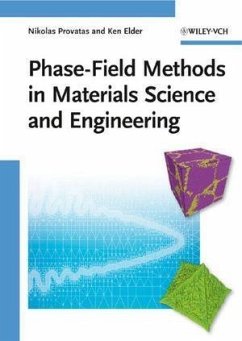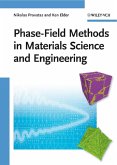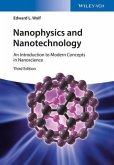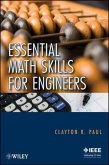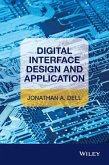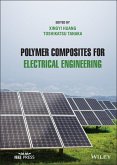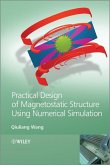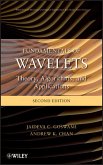135,99 €
135,99 €
inkl. MwSt.
Sofort per Download lieferbar

0 °P sammeln
135,99 €
Als Download kaufen

135,99 €
inkl. MwSt.
Sofort per Download lieferbar

0 °P sammeln
Jetzt verschenken
Alle Infos zum eBook verschenken
135,99 €
inkl. MwSt.
Sofort per Download lieferbar
Alle Infos zum eBook verschenken

0 °P sammeln
- Format: ePub
- Merkliste
- Auf die Merkliste
- Bewerten Bewerten
- Teilen
- Produkt teilen
- Produkterinnerung
- Produkterinnerung

Bitte loggen Sie sich zunächst in Ihr Kundenkonto ein oder registrieren Sie sich bei
bücher.de, um das eBook-Abo tolino select nutzen zu können.
Hier können Sie sich einloggen
Hier können Sie sich einloggen
Sie sind bereits eingeloggt. Klicken Sie auf 2. tolino select Abo, um fortzufahren.

Bitte loggen Sie sich zunächst in Ihr Kundenkonto ein oder registrieren Sie sich bei bücher.de, um das eBook-Abo tolino select nutzen zu können.
This comprehensive and self-contained, one-stop source discusses phase-field methodology in a fundamental way, explaining advanced numerical techniques for solving phase-field and related continuum-field models. It also presents numerical techniques used to simulate various phenomena in a detailed, step-by-step way, such that readers can carry out their own code developments.
Features many examples of how the methods explained can be used in materials science and engineering applications.
- Geräte: eReader
- mit Kopierschutz
- eBook Hilfe
- Größe: 17.27MB
Andere Kunden interessierten sich auch für
![Phase-Field Methods in Materials Science and Engineering (eBook, PDF) Phase-Field Methods in Materials Science and Engineering (eBook, PDF)]() Nikolas ProvatasPhase-Field Methods in Materials Science and Engineering (eBook, PDF)135,99 €
Nikolas ProvatasPhase-Field Methods in Materials Science and Engineering (eBook, PDF)135,99 €![Nanophysics and Nanotechnology (eBook, ePUB) Nanophysics and Nanotechnology (eBook, ePUB)]() Edward L. WolfNanophysics and Nanotechnology (eBook, ePUB)52,99 €
Edward L. WolfNanophysics and Nanotechnology (eBook, ePUB)52,99 €![Essential Math Skills for Engineers (eBook, ePUB) Essential Math Skills for Engineers (eBook, ePUB)]() Clayton R. PaulEssential Math Skills for Engineers (eBook, ePUB)47,99 €
Clayton R. PaulEssential Math Skills for Engineers (eBook, ePUB)47,99 €![Digital Interface Design and Application (eBook, ePUB) Digital Interface Design and Application (eBook, ePUB)]() Jonathan A. DellDigital Interface Design and Application (eBook, ePUB)72,99 €
Jonathan A. DellDigital Interface Design and Application (eBook, ePUB)72,99 €![Polymer Composites for Electrical Engineering (eBook, ePUB) Polymer Composites for Electrical Engineering (eBook, ePUB)]() Polymer Composites for Electrical Engineering (eBook, ePUB)123,99 €
Polymer Composites for Electrical Engineering (eBook, ePUB)123,99 €![Practical Design of Magnetostatic Structure Using Numerical Simulation (eBook, ePUB) Practical Design of Magnetostatic Structure Using Numerical Simulation (eBook, ePUB)]() Qiuliang WangPractical Design of Magnetostatic Structure Using Numerical Simulation (eBook, ePUB)111,99 €
Qiuliang WangPractical Design of Magnetostatic Structure Using Numerical Simulation (eBook, ePUB)111,99 €![Fundamentals of Wavelets (eBook, ePUB) Fundamentals of Wavelets (eBook, ePUB)]() Jaideva C. GoswamiFundamentals of Wavelets (eBook, ePUB)122,99 €
Jaideva C. GoswamiFundamentals of Wavelets (eBook, ePUB)122,99 €-
-
-
This comprehensive and self-contained, one-stop source discusses phase-field methodology in a fundamental way, explaining advanced numerical techniques for solving phase-field and related continuum-field models. It also presents numerical techniques used to simulate various phenomena in a detailed, step-by-step way, such that readers can carry out their own code developments.
Features many examples of how the methods explained can be used in materials science and engineering applications.
Features many examples of how the methods explained can be used in materials science and engineering applications.
Dieser Download kann aus rechtlichen Gründen nur mit Rechnungsadresse in D ausgeliefert werden.
Produktdetails
- Produktdetails
- Verlag: Wiley-VCH
- Erscheinungstermin: 2. August 2011
- Englisch
- ISBN-13: 9783527632374
- Artikelnr.: 37351609
- Verlag: Wiley-VCH
- Erscheinungstermin: 2. August 2011
- Englisch
- ISBN-13: 9783527632374
- Artikelnr.: 37351609
- Herstellerkennzeichnung Die Herstellerinformationen sind derzeit nicht verfügbar.
Nikolas Provatas is an Associate Professor of Materials Science and Engineering and a member of the Brockhouse Institute for Materials Research at McMaster University. He received his Ph.D. in Physics from McGill University. His research in solidification modeling, microstructure formation, reaction-diffusion kinetics and paper physics has been published in numerous high impact scientific journals. He has worked at several prestigious institutions including the University of Illinois at Urbana-Champaign, the University of Helsinki and the Pulp and Paper Research Institute of Canada. His research has also included close collaboration with industry to develop new modeling paradigms for predictive modeling of microstructure-property relationships in materials manufacturing. Ken Elder is an Associate Professor of Physics at Oakland University. Having obtained his Ph.D. from the University of Toronto, he then worked at McGill University, Lehigh University and the University of Illinois at Urbana-Champaign before taking up his present appointment at Oakland University. Dr. Elder has published over 50 scientific articles; his research in condensed matter physics is funded by the National Science Foundation.
PART I: Phase Transformation in Materials Science 1. Introduction to Phase
transformations and microstructure formation in materials science 2. An
example: Solidification of pure materials 3. Phase Transformations and
Phenomenology of Landau 4. Phase field model for solidification in pure
materials 5. Phase Transformations in binary alloys 6. Phase-field models
of phase transformations in binary alloys 7. Applications to microstructure
growth in binary alloys 8. Connection between phase-field and
sharp-interface parameters PART II: Elastic and Plastic Effects in Phase
Transformations 1. Review of Mechanics of Materials 2. Overview of Modeling
and Simulation Techniques in Mechanics 3. Phase-field Models 4.
Applications: Effects of Elastic Stress on Thin Film Growth and Phase
Transformations PART III: Modeling Atomic Scale Systems using the
Phase-Field Method 1. Phase field Modeling of Periodic Systems 2. Modeling
Crystals with Phase Fields 3. Applications PART IV: Numerical Solution
Methods for simulating Phase-Field Models 1. Introduction to Numerical
Methods for PDEs - Space Discretization 2. Iterative Methods for sparse
Linear Systems 3. Numerical Methods for PDEs - Time Marching Schemes 4.
Discretization of the Diffusion Equation 5. Discretization of Advection
Diffusion Equations 6. Introduction to the Message Passing Interface (MPI)
7. Solved MPI Examples
transformations and microstructure formation in materials science 2. An
example: Solidification of pure materials 3. Phase Transformations and
Phenomenology of Landau 4. Phase field model for solidification in pure
materials 5. Phase Transformations in binary alloys 6. Phase-field models
of phase transformations in binary alloys 7. Applications to microstructure
growth in binary alloys 8. Connection between phase-field and
sharp-interface parameters PART II: Elastic and Plastic Effects in Phase
Transformations 1. Review of Mechanics of Materials 2. Overview of Modeling
and Simulation Techniques in Mechanics 3. Phase-field Models 4.
Applications: Effects of Elastic Stress on Thin Film Growth and Phase
Transformations PART III: Modeling Atomic Scale Systems using the
Phase-Field Method 1. Phase field Modeling of Periodic Systems 2. Modeling
Crystals with Phase Fields 3. Applications PART IV: Numerical Solution
Methods for simulating Phase-Field Models 1. Introduction to Numerical
Methods for PDEs - Space Discretization 2. Iterative Methods for sparse
Linear Systems 3. Numerical Methods for PDEs - Time Marching Schemes 4.
Discretization of the Diffusion Equation 5. Discretization of Advection
Diffusion Equations 6. Introduction to the Message Passing Interface (MPI)
7. Solved MPI Examples
PART I: Phase Transformation in Materials Science 1. Introduction to Phase
transformations and microstructure formation in materials science 2. An
example: Solidification of pure materials 3. Phase Transformations and
Phenomenology of Landau 4. Phase field model for solidification in pure
materials 5. Phase Transformations in binary alloys 6. Phase-field models
of phase transformations in binary alloys 7. Applications to microstructure
growth in binary alloys 8. Connection between phase-field and
sharp-interface parameters PART II: Elastic and Plastic Effects in Phase
Transformations 1. Review of Mechanics of Materials 2. Overview of Modeling
and Simulation Techniques in Mechanics 3. Phase-field Models 4.
Applications: Effects of Elastic Stress on Thin Film Growth and Phase
Transformations PART III: Modeling Atomic Scale Systems using the
Phase-Field Method 1. Phase field Modeling of Periodic Systems 2. Modeling
Crystals with Phase Fields 3. Applications PART IV: Numerical Solution
Methods for simulating Phase-Field Models 1. Introduction to Numerical
Methods for PDEs - Space Discretization 2. Iterative Methods for sparse
Linear Systems 3. Numerical Methods for PDEs - Time Marching Schemes 4.
Discretization of the Diffusion Equation 5. Discretization of Advection
Diffusion Equations 6. Introduction to the Message Passing Interface (MPI)
7. Solved MPI Examples
transformations and microstructure formation in materials science 2. An
example: Solidification of pure materials 3. Phase Transformations and
Phenomenology of Landau 4. Phase field model for solidification in pure
materials 5. Phase Transformations in binary alloys 6. Phase-field models
of phase transformations in binary alloys 7. Applications to microstructure
growth in binary alloys 8. Connection between phase-field and
sharp-interface parameters PART II: Elastic and Plastic Effects in Phase
Transformations 1. Review of Mechanics of Materials 2. Overview of Modeling
and Simulation Techniques in Mechanics 3. Phase-field Models 4.
Applications: Effects of Elastic Stress on Thin Film Growth and Phase
Transformations PART III: Modeling Atomic Scale Systems using the
Phase-Field Method 1. Phase field Modeling of Periodic Systems 2. Modeling
Crystals with Phase Fields 3. Applications PART IV: Numerical Solution
Methods for simulating Phase-Field Models 1. Introduction to Numerical
Methods for PDEs - Space Discretization 2. Iterative Methods for sparse
Linear Systems 3. Numerical Methods for PDEs - Time Marching Schemes 4.
Discretization of the Diffusion Equation 5. Discretization of Advection
Diffusion Equations 6. Introduction to the Message Passing Interface (MPI)
7. Solved MPI Examples
